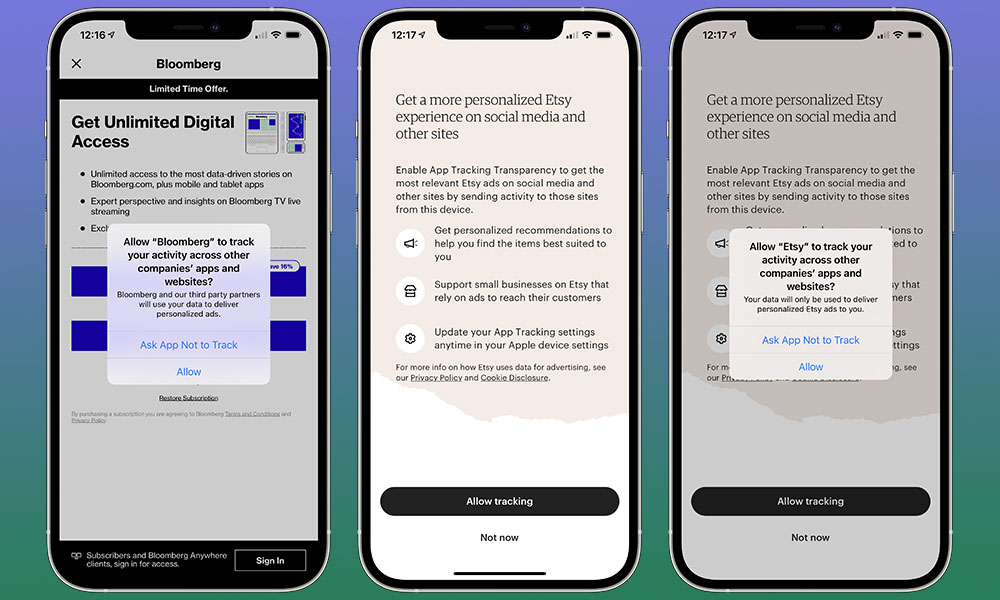iPhone’s ‘Ask App Not to Track’ Option Is Not Fully Protecting Your Data
 Credit: Jesse Hollington
Credit: Jesse Hollington
Toggle Dark Mode
Apple introduced App Tracking Transparency with the launch of iOS 14.5 to give end-users more control over how much of their data is shared with third parties for purposes such as targeted advertising. The feature isn’t meant to cut the advertising industry off completely but rather to ensure that you have more of a say in which apps are gaining access to your information and sharing it. However, it turns out you don’t have as much of a say as you thought.
When you choose for an app not to track you, it is supposed to stop apps from accessing information about what you’re doing on other apps and websites. However, Johnny Lin, former Apple engineer and co-founder of the software company Lockdown Privacy, says otherwise in a report from the Washington Post, which summarizes a study that evaluated the effectiveness of ATT for top apps in the App Store.
In our tests of ten top-ranked apps, we found no meaningful difference in third-party tracking activity when choosing App Tracking Transparency’s “Ask App Not To Track”. The number of active third-party trackers was identical regardless of a user’s ATT choice, and the number tracking attempts was only slightly (~13%) lower when the user chose “Ask App Not To Track
Johnny Lin and Sean Halloran
Apple claims that App Tracking Transparency gives users the choice to allow third-party tracking, so why are they still able to track you if you don’t want them to? Well, it seems Apple’s definition of tracking is actually quite misleading.
Lin explains four main reasons as to why the companies definition of tracking is misleading, counterintuitive, and confusing:
- It is too narrow in scope.
- It contains too many caveats.
- It relies too heavily on trusting the very tracking companies that the policies are supposed to be protecting users against.
- It incentivizes less transparency, creating more dangers for privacy.
What Data are Apps Still Getting?
The Lockdown Privacy study lists what information is sent to trackers, despite the user having chosen the “Ask App Not To Track” option. Here are some of the most personal data being shared from some of the top apps, according to the study:
- Grubhub: First Name, Last Name, Location (Exact Long/Lat)
- Subway Surfers: Free Storage Space (bytes precision), Current Battery Level (15 decimals precision), Current Volume Level (3 decimals precision)
- Run Rich 3D: Device Name (e.g, “John’s iPhone X”), Accessibility Setting: Bold Text, Accessibility Setting: Custom Text Size.
- Cash App, Grubhub: All data sent by this tracker was encrypted, and the client SDK is closed source. There is no way to determine how much personal user data is being sent to AppsFlyer.
Of course, ATT has stirred up controversy amongst apps and websites that depend on user data for their business’ success. Naturally, with the power in the consumer’s hands, the company is at a disadvantage, but it turns out they aren’t missing out on so much data after all. Keep in mind that ATT also doesn’t prevent tracking within their own apps or multiple apps that all belong to the same owner, such as Facebook, Facebook Messenger, Instagram, and WhatsApp.






